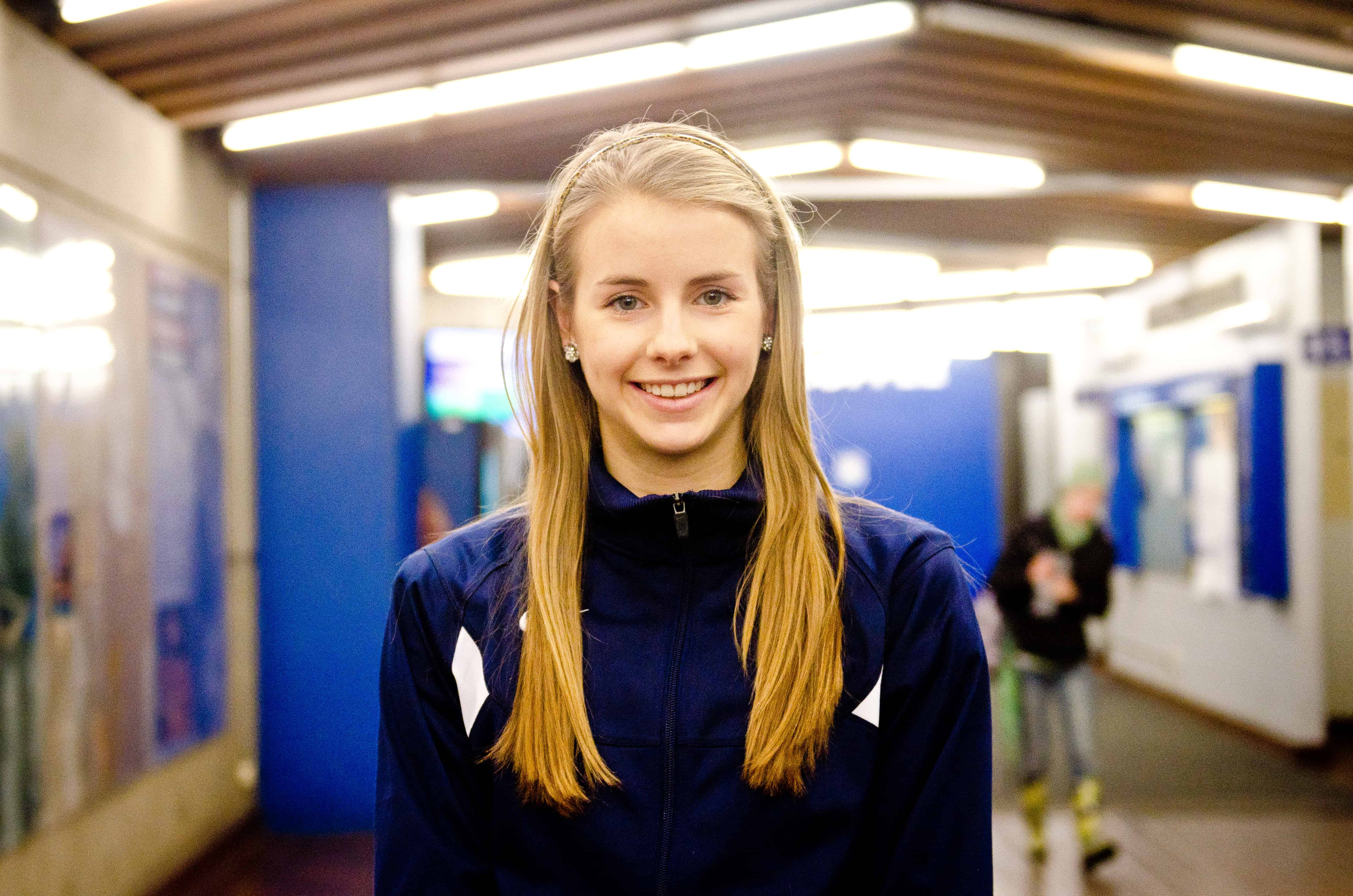Pentathlon is a rigorous test of stamina, endurance, and versatility; the best pentathletes are endowed with strength and speed.
For the past two years, kinesiology student Rachel Jewett has worked to enhance those physical qualities. The Varsity Blues athlete has shown promise since her time as a Junior Blue in the tenth grade and won the pentathlon at the recent Fred Foot Classic with 3,427 points.
“I was more focused on my overall personal best and 800m personal best than actually winning the meet,” said Jewett. “[The win] came secondary [to me] and was a nice surprise.”
Track pentathlon can be daunting, since it requires the mastery of five very different disciplines.
“The event requires the athlete to be fast [for 60m hurdles and long jump], explosive and strong [for high jump and shot put], and possess aerobic strength as well [for 800m],” explains track and field head coach Carl Georgevski. “In other words, a well-rounded, coordinated athlete.”
Pentathlon begins with the 60m hurdles. “[You’re] sprinting and [you need] strength to keep your body in line [to] get over the hurdles as efficiently as possible,” Jewett says.
The Blues pentathlete placed third at the classic with a time of 9.41s.
Up next is the high jump. “The high jump is a very mental game because it can be quite slow,” notes Jewett. “It’s very hard to keep your body doing what it knows how to do, and not [getting] your mind [to say things like]: ‘the bar’s even higher, I’ve never attempted this height before,’ or ‘I know that when the bar gets to this height, I start faltering [and] knocking the bar down.’”
Jewett’s ability to push those thoughts out of her mind helped her clear another personal record of 1.67m in the high jump in pentathlon.
Then comes the shot put. “Shot put [requires] a lot of explosive strength,” explains Jewett. “You need upper body strength, but you also use your legs to propel the momentum of the ball forward.”
At the classic, Jewett added to her score with a toss of 8.97m.
Fourth on the list is the long jump. “Basically, you just run as fast as you can, [trying] to get your body up as high as [possible] to jump the farthest,” explained Jewett, who ranked sixth with a leap of 4.65m.
Pentathlon’s final event is the 800m race, which takes “the most mental concentration” according to Jewett. “I knew that no one else in the field had a very strong 800m time, and it’s difficult to run an 800m by yourself [because] you’re pacing yourself the whole time rather than following someone.”
Jewett finished the 800m with a time of 2 minutes and 17.70 seconds, 18.22 seconds in front of her closest competitor. Her total of 3,427 points, 136 points more than the silver medalist, was a personal pentathlon best.
With running, jumping, and throwing all required for this one athletic discipline, it’s hard to believe that Rachel can squeeze in a full-time university degree. “Training for the pentathlon takes [up] a lot of hours,” admits Jewett. “Since [there are] many different events, and [you] need to do the technical work for every event, practices can drag out to three or four hours. But I find that the more demands I have on my time, the more organized I become.”
Jewett hopes to qualify for the CIS championship; her plan consists of more practice, proper rest, and a commitment to work on her weaknesses while maintaining her strengths.
“It’s nice to win [and] it’s nice to perform well compared to other people, but the biggest thing is to try to improve on what I did before, learn from what I did before, and try to do better next time.”


